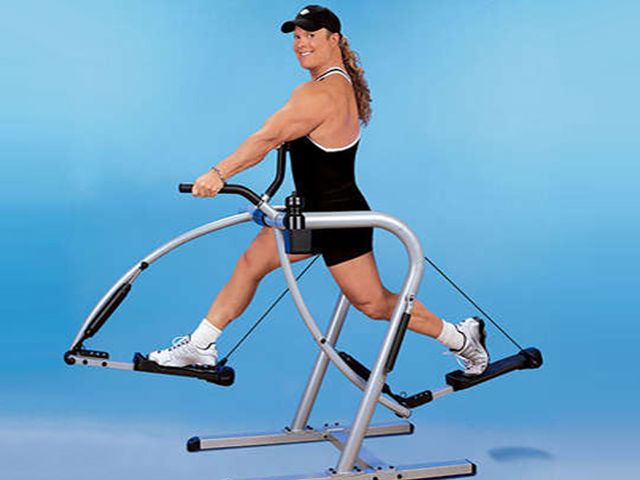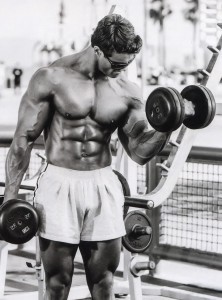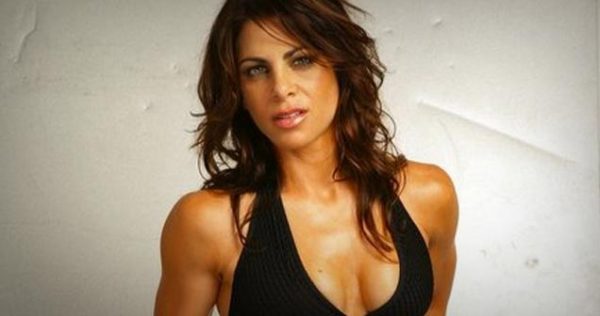Does being in great shape make you a better fitness pro?
Vince Lombardi, Bill Belichick, and Bill Parcells all had forgettable careers as pro football players. Still, each appears on everyone’s list of Top Football Coaches of All Time.
On the other hand, Wayne Gretzky was arguably the greatest hockey player of all time. Yet his success behind the bench isn’t putting him on any NHL team’s wish-list of head coaching candidates.
In fitness, someone offers advice on getting bigger or leaner and the immediate reaction is to first size them up. Are they big and strong? Lean and muscular? Look how we want to look?
Do they even lift?
That type of thinking is wrong. Or is it?
Jillian Michaels is in great shape and millions of women (and likely a few men) want to look like her. But if what she does on The Biggest Loser is any indication of her abilities then there’s no subtle way to say it — as a trainer, she’s a train wreck.
And she’s not the first “all hat, not cattle” fitness pro. Back in the 80’s Tony Little had a big set of quads and arms, not to mention a mullet that would be the talk of any trailer park. But in terms of sets and reps, let’s just say Verkhoshansky he ain’t.
Still, a lack of training skill never kept him or Michaels or the jacked Soloflex guy or a slew of others from positioning themselves as experts. And making a wack load of cash.

When I started lifting at 16
if someone offered advice on anything – gaining weight, losing weight, program design – the first thing I’d do was size them up.
They have skinny arms and no shoulders? And they’re trying to tell me how to lift?
Not interested.
Instead, I’d hang out at the local World Gym for hours at a stretch, just to hob-knob with the top bodybuilders and find out how they train.
What exercises did they do? How many sets and reps? What techniques? What did they eat? In hindsight, I was a real pest.
Eventually I came to realize that the guys (and girls) that seem to have it all – size, shape, symmetry, strength, the ability to lose fat almost overnight – often “know” the least.
They just know what works for them, and how to work hard and stick to a plan with robot-like consistency. But in terms of helping others, especially mere mortals, their expertise is limited.
For that reason it’s considered unwise to use appearance or personal achievement as an indicator for knowledge or expertise. Because someone at the excellent level, in any athletic endeavor, is almost always an “outlier.”
They’re quite literally “built” to succeed. Or at least they have the raw materials in place to go far. They just need to add hard work and consistency, and usually some coaching from someone that actually does know what they’re talking about.
So it’s smarter to seek guidance from someone with other qualities, like hands-on experience and education. The latter is where you learn scientific principles, which allows the former to be placed into proper context.
That’s the logical way. The smart way.
So why do I increasingly find myself reverting back to my teenager way of thinking?

Today when someone I don’t know offers me advice on anything pertaining to building muscle or getting leaner or even just getting in shape, I can’t help but give them a quick once-over. You know, size ‘em up.
Are they in shape themselves? Or at least have been in shape before?
If not, even if they have a track record for helping others, how come they failed themselves?
Do they not know what they’re doing? Or was it just not that important to them?
Why did they give up?
Did they lack commitment?
People new to fitness often email me for ways to “spot a good fitness pro.” On the flip side, young people looking to break into the industry will ask me for advice on building “a following” or “a stronger brand.”
I’m no expert on either, but I do always have one piece of advice:
Whether you’re considering hiring a coach or trying to establish a career as one, the coach’s experience and physique should reflect some mastery in that endeavour.
Yes, as in, “looking the part.”
It’s unfair and illogical, not to mention politically incorrect. It’s also just how it is.
Trying to do otherwise – being the overweight “fat loss coach” or the weak “powerlifting czar” – is like trying to swim upstream.
Because while being in shape doesn’t mean that you’re smart or experienced or even professional, it does, however, show commitment.
And if you think that’s trivial, then look at the average person seeking advice: Joe and Jane Blow is more “educated” than ever, and has access to an unprecedented amount of books and blogs and articles, all saying variations of the exact same thing.
So it’s not information or resources that they’re lacking.
Someone who just looks the part, gifted as they may be, still had to show up and work hard and be consistent. They still had to be committed. And that counts for something.
Cause that’s what it took to build the best physique when I was 16.
And it still works that way today.

